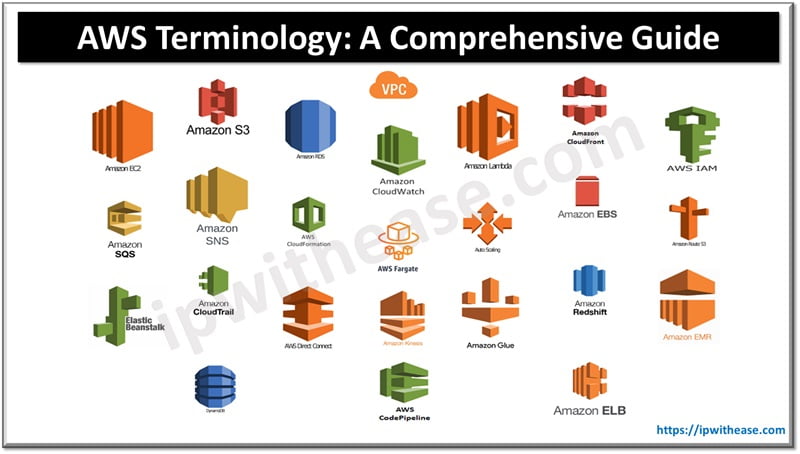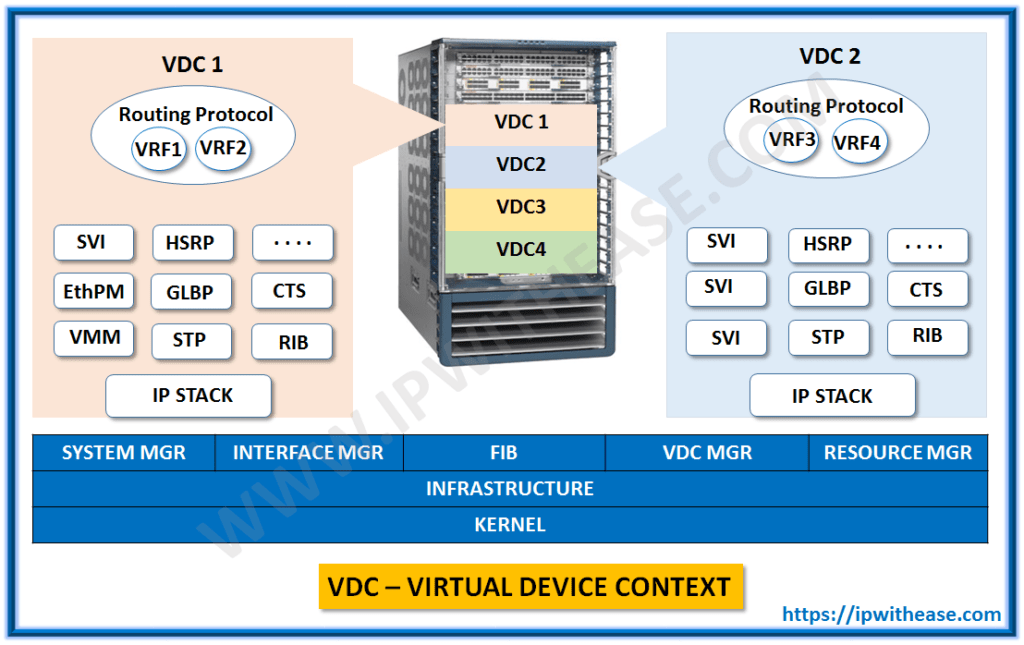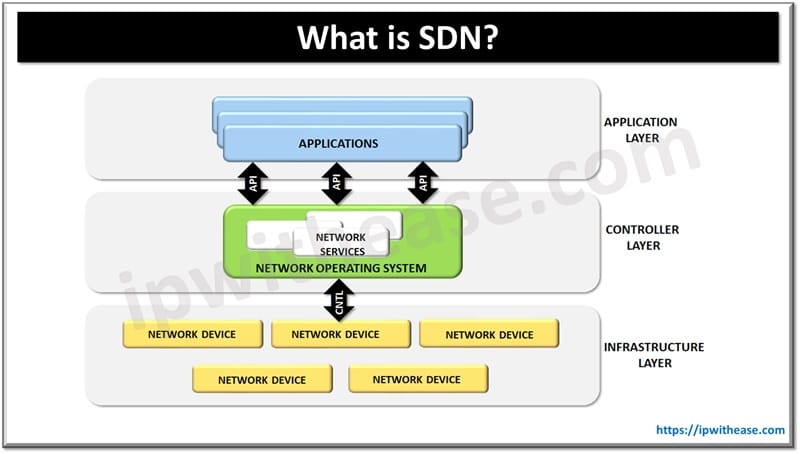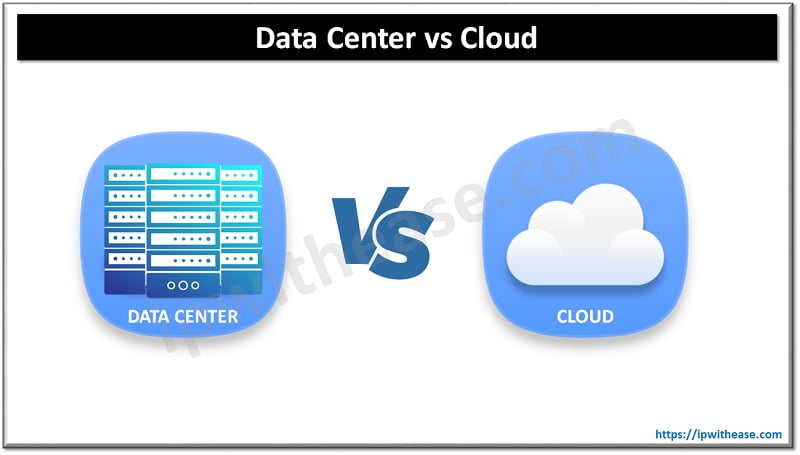Google ADs
Table of Contents
AWS, or Amazon Web Services, is a comprehensive and widely adopted cloud platform offered by Amazon. It provides a broad set of infrastructure services, such as computing power, storage options, and networking, delivered over the internet (the cloud). AWS (Amazon Web Services) has a vast array of services and terminology.

AWS Terminology
Here are some key terms you should be familiar with under AWS terminology:
1. Amazon EC2 (Elastic Compute Cloud)
- Overview: Provides scalable computing capacity in the cloud.
- Key Concepts: Instances, AMIs (Amazon Machine Images), instance types, EBS (Elastic Block Store).
2. Amazon S3 (Simple Storage Service)
- Overview: Object storage service offering scalability, data availability, security, and performance.
- Key Concepts: Buckets, objects, storage classes, versioning, lifecycle policies.
3. Amazon RDS (Relational Database Service)
- Overview: Managed relational database service supporting multiple database engines.
- Key Concepts: DB instances, read replicas, automated backups, Multi-AZ deployment.
4. Amazon VPC (Virtual Private Cloud)
- Overview: Isolated section of the AWS cloud where you can launch AWS resources.
- Key Concepts: Subnets, route tables, internet gateways, NAT gateways, security groups.
5. AWS Lambda
- Overview: Run code without provisioning or managing servers.
- Key Concepts: Functions, triggers, event sources, stateless compute.
6. Amazon CloudFront
- Overview: Content delivery network (CDN) to distribute content with low latency and high transfer speeds.
- Key Concepts: Distributions, origins, edge locations, caching.
7. AWS IAM (Identity and Access Management)
- Overview: Manage access to AWS services and resources securely.
- Key Concepts: Users, groups, roles, policies, MFA (multi-factor authentication).
8. Amazon SQS (Simple Queue Service)
- Overview: Fully managed message queuing service to decouple and scale microservices, distributed systems, and serverless applications.
- Key Concepts: Queues, messages, FIFO (First-In-First-Out) queues, standard queues.
9. Amazon SNS (Simple Notification Service)
- Overview: Fully managed pub/sub messaging service.
- Key Concepts: Topics, subscriptions, messages, push notifications.
10. AWS CloudFormation
- Overview: Service to model and set up AWS resources using templates.
- Key Concepts: Stacks, templates, resources, parameters.
11. AWS CloudWatch
- Overview: Monitoring and observability service for AWS cloud resources and applications.
- Key Concepts: Metrics, logs, alarms, dashboards.
12. AWS Auto Scaling
- Overview: Automatically adjusts the number of EC2 instances according to conditions you define.
- Key Concepts: Scaling policies, launch configurations, scaling groups.
13. Amazon EBS (Elastic Block Store)
- Overview: Block storage service for use with EC2.
- Key Concepts: Volumes, snapshots, encryption, IOPS (Input/Output Operations Per Second).
14. Amazon Route 53
- Overview: Scalable DNS and domain name registration service.
- Key Concepts: Hosted zones, DNS records, health checks, traffic policies.
15. Amazon Elastic Beanstalk
- Overview: Easy-to-use service for deploying and scaling web applications and services.
- Key Concepts: Environments, applications, platforms, configurations.
16. AWS CloudTrail
- Overview: Service that enables governance, compliance, and operational and risk auditing of your AWS account.
- Key Concepts: Trails, event history, logs, S3 bucket for storage.
17. AWS Direct Connect
- Overview: Service to establish a dedicated network connection from your premises to AWS.
- Key Concepts: Connections, virtual interfaces, link aggregation groups (LAGs).
18. AWS Fargate
- Overview: Serverless compute engine for containers.
- Key Concepts: Task definitions, clusters, services, ECS (Elastic Container Service), EKS (Elastic Kubernetes Service).
19. AWS Glue
- Overview: Fully managed ETL (extract, transform, load) service.
- Key Concepts: Data catalog, crawlers, jobs, development endpoints.
20. Amazon Redshift
- Overview: Fully managed data warehouse service.
- Key Concepts: Clusters, nodes, data warehouse, Spectrum.
21. Amazon EMR (Elastic MapReduce)
- Overview: Cloud big data platform for processing vast amounts of data using open-source tools.
- Key Concepts: Clusters, nodes, instance groups, Hadoop, Spark.
22. Amazon DynamoDB
- Overview: Fully managed NoSQL database service.
- Key Concepts: Tables, items, attributes, partitions, indexes.
23. Amazon Kinesis
- Overview: Platform for real-time data streaming and analytics.
- Key Concepts: Streams, shards, producers, consumers, Firehose, Analytics.
24. AWS CodePipeline
- Overview: Continuous integration and continuous delivery (CI/CD) service for fast and reliable application and infrastructure updates.
- Key Concepts: Pipelines, stages, actions, artifacts.
25. AWS Elastic Load Balancing (ELB)
- Overview: Automatically distributes incoming application traffic across multiple targets.
- Key Concepts: Load balancers (Application, Network, and Classic), target groups, listeners, health checks.
Related: AWS CheatSheet
Google ADs
ABOUT THE AUTHOR

Founder of AAR TECHNOSOLUTIONS, Rashmi is an evangelist for IT and technology. With more than 12 years in the IT ecosystem, she has been supporting multi domain functions across IT & consultancy services, in addition to Technical content making.
You can learn more about her on her linkedin profile – Rashmi Bhardwaj



